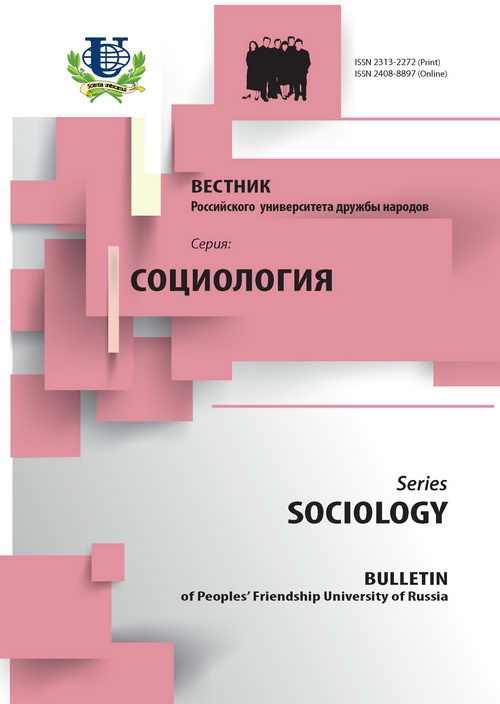The Reflexive Principle of Sociological Theorization
- Authors: Ubaidullayeva RT1
-
Affiliations:
- National University of Uzbekistan named after Mirzo Ulugbek
- Issue: No 1 (2013)
- Pages: 47-56
- Section: Articles
- URL: https://journals.rudn.ru/sociology/article/view/6169
- ID: 6169
Cite item
Full Text
Abstract
About the authors
R T Ubaidullayeva
National University of Uzbekistan named after Mirzo Ulugbek
Email: u.raisa@mail.ru
Sociology Chair
References
Supplementary files












